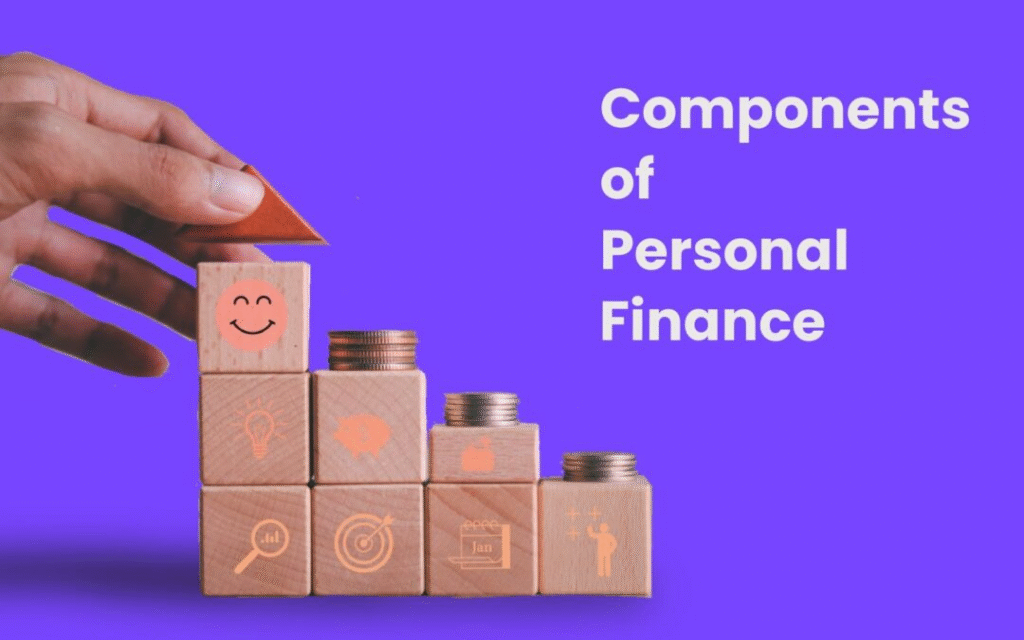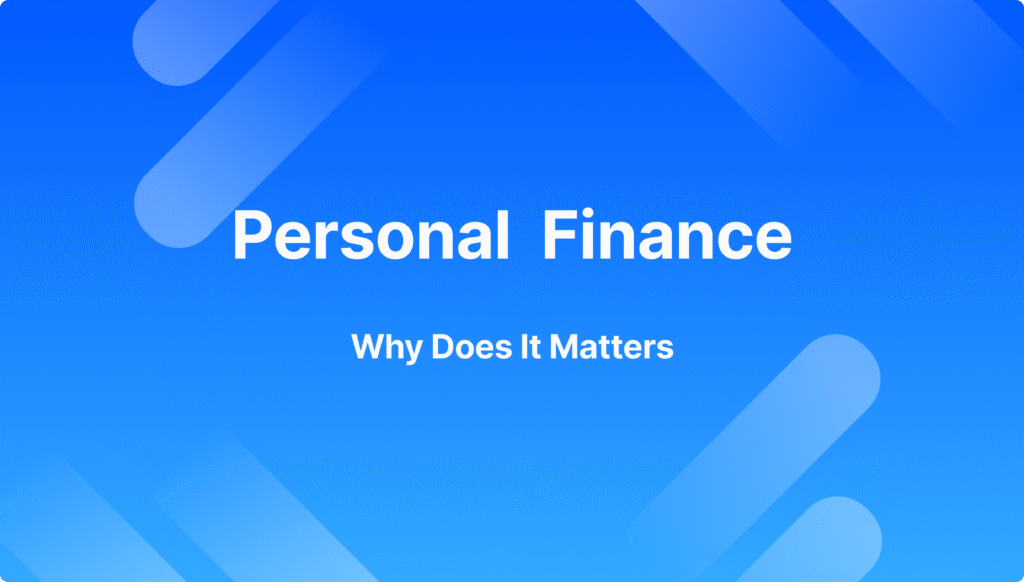Personal finance is a term we hear often, but many still don’t fully grasp its depth or significance. It’s more than just balancing your checkbook or remembering to pay the bills on time. Personal finance involves all the financial decisions and activities of an individual or household—from budgeting and saving to investing and planning for retirement.
In a world where financial instability is common, understanding how to manage your personal finances can be the difference between a secure future and a life riddled with stress and uncertainty. The journey to financial literacy begins with a solid grasp of what personal finance really is—and why it matters more today than ever before.
The financial landscape is constantly evolving, with increasing access to credit, changing job markets, rising costs of living, and unpredictable economic shifts. Without a strategic approach to managing your money, it’s easy to become overwhelmed. This article is your deep-dive guide into the world of personal finance—what it is, why it’s essential, and how you can master it to create a better life.
Key Takeaways
- Personal finance is about managing your money to achieve financial well-being.
- Budgeting and tracking expenses are the foundation of good financial management.
- Building an emergency fund protects you against unexpected events.
- Debt should be managed strategically to avoid high-interest costs.
- Investing early and regularly can grow your wealth over time.
- Using tools and resources can simplify managing your finances.
Understanding the Basics of Personal Finance
Definition:
Personal finance refers to how individuals manage their money and make decisions about spending, saving, investing, and budgeting. It’s essentially your relationship with money and how you handle it to meet your personal economic goals.
Why It Matters:
- Independence: Financial knowledge gives you the freedom to live life on your terms.
- Preparedness: Helps you handle emergencies and life’s unexpected turns.
- Goal Achievement: Whether buying a home or starting a business, personal finance is the roadmap.
Key Components of Personal Finance

Budgeting
Budgeting is the foundation of personal finance. It helps you plan how much money you spend and ensures you’re not overspending.
- Types of budgets (zero-based, envelope, 50/30/20 rule)
- Tools to budget (apps, spreadsheets, planners)
- Budgeting tips for beginners
Saving
Saving allows you to set aside funds for emergencies, future purchases, or investing.
- Emergency funds
- Short-term vs. long-term savings
- High-yield savings accounts
Investing
Investing involves putting your money to work to earn returns over time.
- Stocks, bonds, mutual funds, ETFs
- Risk and reward balance
- Retirement accounts (401(k), IRA)
Debt Management
Managing debt is essential for financial health.
- Good debt vs. bad debt
- Debt payoff methods (avalanche vs. snowball)
- Credit scores and how to improve them
Retirement Planning
It’s never too early to plan for retirement.
- Retirement savings plans
- The power of compound interest
- How much you should save
Insurance
Insurance protects your financial future.
- Types: health, life, disability, auto, home
- Choosing the right coverage
- Insurance as part of a risk management strategy
Tax Planning
Effective tax planning saves money and keeps you compliant.
- Tax brackets and credits
- Strategies to reduce taxable income
- Filing tips
Importance of Personal Finance
Financial Security and Peace of Mind
Managing your personal finance well provides a safety net. By budgeting, saving, and investing wisely, you ensure you can cover unexpected expenses like medical emergencies, car repairs, or sudden job loss. This financial cushion leads to less stress and more confidence in facing life’s uncertainties.
Achieving Life Goals
Personal finance gives you a clear roadmap to achieving important milestones — buying a home, funding education, starting a business, or traveling the world. It helps you set realistic timelines and devise strategies to reach these goals without accumulating overwhelming debt.
Control Over Your Future

Without personal finance knowledge, many live paycheck to paycheck, vulnerable to economic downturns or personal crises. With sound personal finance practices, you gain control over your money, reducing dependency on credit and high-interest loans.
Building Wealth and Generational Legacy
Smart investing and saving can grow your wealth exponentially over time, enabling you to not only secure your own future but also create financial stability for future generations.
Improved Quality of Life
Good financial management can reduce anxiety related to money, enabling you to enjoy life more fully and focus on passions, family, and career without constant financial worry.
Common Financial Challenges
Living Beyond Your Means
Spending more than you earn is a common problem that leads to debt and financial stress.
Lack of Emergency Fund
Without savings set aside for emergencies, any unexpected expense can derail your financial stability.
Poor Debt Management
High-interest debts like credit cards can spiral out of control if not managed properly.
Insufficient Retirement Planning
Many underestimate how much money they need for retirement or start saving too late.
Financial Illiteracy
A lack of understanding about basic financial concepts causes poor decisions and missed opportunities.
Impulsive Spending
Emotional or impulsive purchases can sabotage even the best budgets.
Inflation and Cost of Living
Rising costs can outpace income growth, straining budgets over time.
Steps to Take Control of Your Finances
Track Your Income and Expenses
- Why It Matters: You can’t manage what you don’t measure. Knowing exactly how much money flows in and out gives you a clear picture of your financial health.
- How to Do It:
- Daily logging: Use apps like Mint, YNAB, or even Google Sheets to log expenses daily to avoid forgetting small purchases.
- Categorize spending: Group expenses into categories like groceries, utilities, entertainment, transportation, etc. This helps identify areas where you might overspend.
- Review monthly: At the end of each month, analyze your spending patterns to spot trends or unnecessary expenses.
- Bonus Tip: Keep receipts or take pictures of expenses if you prefer a paper trail.
Create a Budget
- Crafting a Realistic Budget:
- Base your budget on actual tracked data, not estimates.
- Include irregular expenses like annual insurance payments or holiday gifts by dividing their cost monthly.
- Popular Budgeting Techniques:
- 50/30/20 Rule: 50% needs, 30% wants, 20% savings/debt.
- Zero-Based Budgeting: Every dollar is assigned a purpose, so income minus expenses equals zero.
- Envelope System: Use cash envelopes for categories prone to overspending.
- Avoid Common Pitfalls:
- Don’t cut essentials too tightly, which leads to frustration.
- Keep a buffer for unexpected expenses.
- Stay Flexible: Life changes, so update your budget regularly.
Build an Emergency Fund

- Ideal Size: Start with $1,000 for small emergencies, then grow to cover 3–6 months of essential living costs (rent, food, utilities).
- Where to Keep It:
- Use a high-yield savings account for easy access and better interest.
- Avoid investment accounts here because you might need quick access without market risk.
- How to Build It:
- Automate small monthly transfers to this fund.
- Treat emergency fund savings like a non-negotiable expense.
- When to Use It: Only for true emergencies — job loss, medical bills, major repairs.
Pay Down Debt Strategically
- Debt Avalanche vs. Snowball:
- Avalanche Method: Pay off the highest interest rate debts first to minimize overall interest paid.
- Snowball Method: Pay off the smallest balances first to build momentum and motivation.
- Additional Strategies:
- Negotiate lower interest rates with creditors.
- Consolidate high-interest debts into lower-interest loans if possible.
- Avoid adding new debt during repayment phase.
- Stay Motivated: Celebrate small wins, like paying off a credit card.
Automate Savings and Payments
- Automation Benefits:
- Removes temptation to spend money allocated to savings.
- Avoids late fees and penalties from missed bill payments.
- Helps build discipline and consistency over time.
- How to Automate:
- Set up recurring transfers from checking to savings accounts on payday.
- Use auto-pay for utilities, loans, credit cards, and subscriptions.
- Monitor Automation: Occasionally check that automated payments and transfers are running smoothly and that no unexpected fees are being deducted.
Educate Yourself Regularly
- Why Education Matters: The financial world is always evolving. Continuous learning helps you avoid scams, spot opportunities, and make better decisions.
- How to Learn:
- Read trusted books and blogs (like The Simple Path to Wealth by JL Collins, or Your Money or Your Life by Vicki Robin).
- Listen to podcasts such as ChooseFI or The Money Guy Show.
- Take free or paid courses on platforms like Coursera, Udemy, or Khan Academy.
- Attend local workshops or webinars.
- Join Communities: Engage in forums like Reddit’s r/personalfinance or local financial groups for peer advice and support.
Set Financial Goals

- Define Clear Goals:
- Short-term (1 year or less): Save for a vacation, pay off a credit card.
- Medium-term (1-5 years): Buy a car, save for a home down payment.
- Long-term (5+ years): Retirement savings, college fund for kids.
- Make Goals SMART: Specific, Measurable, Achievable, Relevant, Time-bound.
- Break Goals Down: Split big goals into monthly or weekly milestones to keep motivated.
- Visualize Progress: Use charts, apps, or journals to track progress.
Monitor and Adjust
- Regular Reviews: Schedule monthly or quarterly financial check-ins.
- Ask Questions:
- Are you sticking to your budget?
- Are your savings growing?
- Has your income or expenses changed?
- Are you closer to your goals?
- Adjust for Life Changes: Job changes, marriage, children, or moving homes require updating your financial plan.
- Be Flexible but Disciplined: Don’t let small setbacks derail your entire plan.
Additional Tips
Consider Professional Help
A financial advisor can offer tailored strategies that align with your unique goals and risk tolerance, helping you make informed decisions. They can also assist with complex issues like estate planning, tax strategies, and retirement readiness, ensuring your financial plan adapts as your life changes.
Avoid Lifestyle Inflation
When your income grows, resist the temptation to upgrade your lifestyle immediately. Instead, channel the extra income into savings, investments, or debt repayment to build long-term financial security. This disciplined approach accelerates wealth creation and helps you reach financial independence faster.
Keep Financial Documents Organized
Organizing your financial records systematically saves time during tax season and in emergencies. Use secure digital storage to easily access statements, receipts, and legal documents whenever needed, reducing stress and improving your ability to track your financial progress.
Plan for Taxes
Proactively understanding tax rules and deadlines can help you minimize liabilities and maximize refunds. Planning allows you to take advantage of deductions, credits, and tax-advantaged accounts, ultimately preserving more of your hard-earned money for your financial goals.
Tools & Resources
Budgeting Apps
- Mint — Automatically syncs your accounts and helps track spending.
- You Need a Budget (YNAB) — Emphasizes giving every dollar a job.
- PocketGuard — Shows how much you can safely spend after bills.
Savings Tools
- High-yield savings accounts — Earn better interest on emergency savings.
- Certificates of Deposit (CDs) — Lock in rates for fixed terms.
Investment Platforms
- Robinhood — Easy-to-use stock trading app.
- Vanguard — Known for low-cost mutual funds and ETFs.
- Betterment — Robo-advisor for automated investing.
Credit Monitoring
- Credit Karma — Free credit score and report monitoring.
- Experian — Offers detailed credit reports and alerts.
Educational Resources
- Books: The Total Money Makeover by Dave Ramsey, Rich Dad Poor Dad by Robert Kiyosaki
- Websites: Investopedia, NerdWallet, The Balance
- Podcasts: The Dave Ramsey Show, Planet Money, ChooseFI
Also Read: How Do Successful Investors Choose Their Investment Strategies?
Conclusion
Personal finance is not a luxury or an abstract concept—it’s a practical and necessary skill everyone should develop. It impacts every area of your life, from your ability to meet daily needs to your long-term security and freedom.
Taking control of your finances can seem daunting at first, but with the right knowledge, tools, and habits, anyone can build a secure financial future. The key is to start small, stay consistent, and never stop learning.
By understanding what personal finance is and why it matters, you empower yourself to make smarter money decisions, avoid common pitfalls, and live a life free of financial worry.
Personal finance is much more than just managing money—it’s about empowering yourself to make intentional decisions that improve your quality of life, secure your future, and help you achieve your dreams. By understanding the fundamentals of budgeting, saving, investing, and debt management, you gain control over your financial destiny instead of letting money control you.
FAQs
How much should I save each month?
A general rule is to save at least 20% of your income. Adjust based on your goals and expenses.
What’s the difference between saving and investing?
Saving is setting aside money in low-risk accounts for short-term needs, while investing involves buying assets to grow wealth over time, which carries risk.
Is credit card debt always bad?
Not necessarily. Using credit cards responsibly can build credit history, but carrying high balances and missing payments can hurt your credit and finances.
When should I start investing?
As early as possible — the power of compound interest means your money grows exponentially over time.
How can I improve my credit score quickly?
Pay down balances, make all payments on time, avoid opening new credit lines unnecessarily.
What if I don’t have a steady income?
Budget based on your lowest expected income and build a larger emergency fund for unpredictability.
What’s the best way to create a budget?
Start by tracking your income and expenses. Use the 50/30/20 rule as a guide: 50% for needs, 30% for wants, and 20% for savings and debt repayment. Adjust to fit your specific financial situation.


